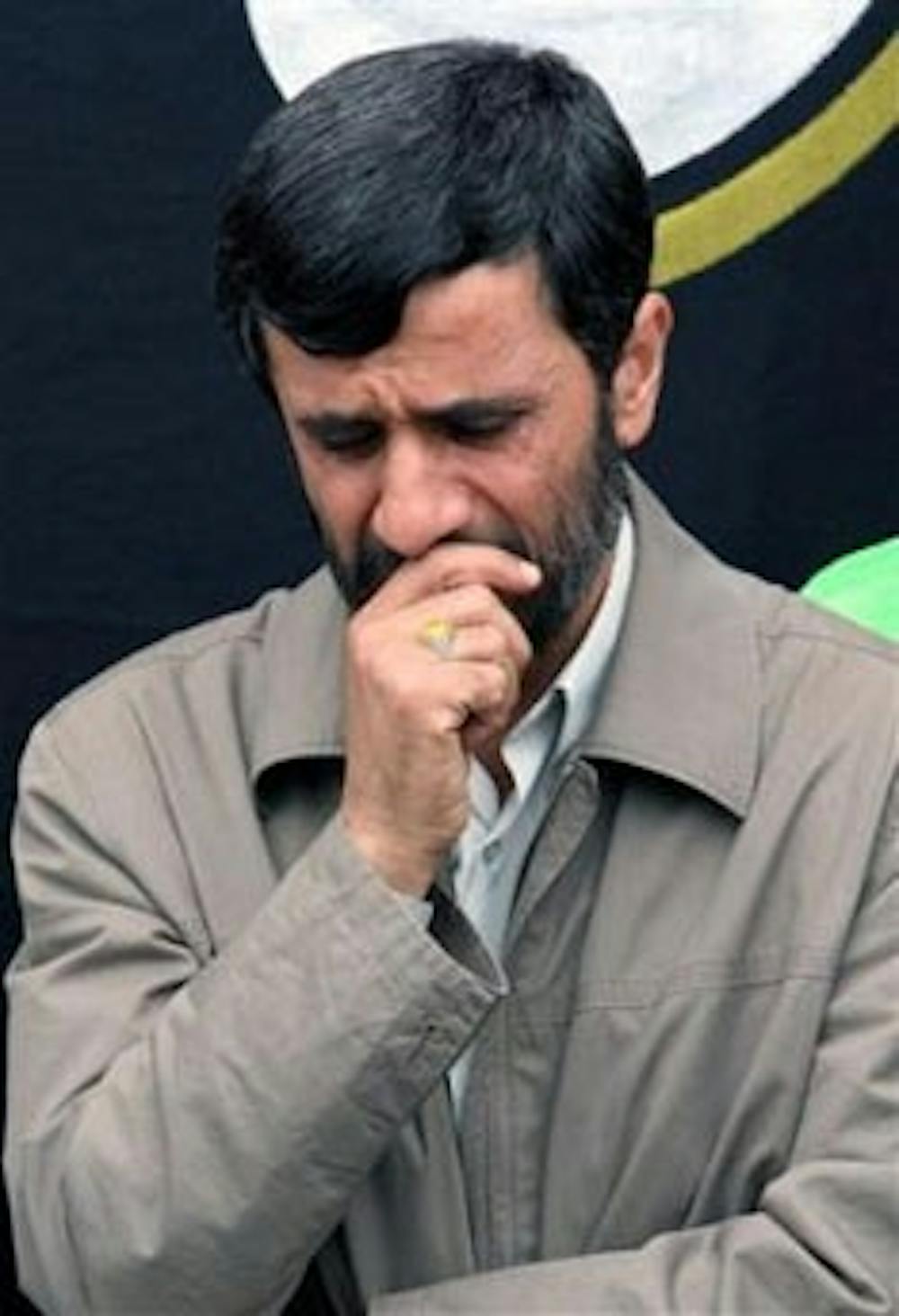Democracies are such a problem. Sure, they provide a solid basis for capitalist enterprise, grant people greater control of the government and give a nation greater credibility on the world stage. But oh, when failure and discontent festers in the minds of the voters, what are the poor strongmen in the palaces of power to do? They can't just let themselves be voted out by popular will, nor can they win an election by the slightest of margins. They must keep hold of their scepters and make it seem as though they have a mandate, to keep those snippity upstarts from mustering the gall to question them.
For Iran's ruling parties, specifically Supreme Leader Ayatollah Ali Khamenei and President (-cough-) Mahmoud Ahmadinejad, the problems democracy creates for despots have come to a boiling point. The country is embroiled in a multitude of protests after the presidential election, in which the government (Iran has no independent agency that verifies election results) ruled that Ahmadinejad had taken the election with 66 percent of the vote, despite a lengthy series of logical and statistical reasons why such a result is highly debatable (which are detailed in this excellent article).
I've made snide remarks about Twitter in the past, what with its stupid character limit and apparent lack of usefulness in comparison to other web applications, but the uprising against the Iranian government has been by and large covered via people going onto Twitter and other similar Internet resources and informing the world about just what's going on. Many of the major news outlets have devoted large amounts of their coverage to these reports, especially as they're faced with an increasingly tyrannical Iranian government trying to take control of everything being covered in their country (the Associated Press' problems with allowing non-governmental Iranian news sources access to materials are covered here).
Even though reports are now coming in that Internet speeds are drastically decreasing nationwide, either due to increased use or for more dubious reasons, the movement for reform in Iran, led by presidential candidate (and to some, President) Mir Hossein Moussavi, has done an incredible job utilizing the web, to the extent at which I don't go to the BBC or CNN first for information about the protests and the backlash, I head to the blogs (with The Guardian's liveblog being first and foremost) and to, amazingly, Twitter. It's through online resources that I've gained much of my knowledge, and though it all must be viewed with a grain of salt (a ton of people are now going wild about a supposedly leaked document from the Iranian government proving the elections results were fraudulent, especially now that the man who supposedly leaked them has been killed in a suspicious car crash, but the document has yet to be completely verified).
It would be nice to think that these protests will lead to immediate change and a swift alteration of the guard in Iran, but the government is simply too powerful, with too many resources and too few morals to be taken down so easily. What this contested election does mark is the begining of the end of the current Iranian regime, and an indication that tanks and explosives aren't needed for democracy to flourish in the Middle East. All there needs to be is a strong voice, a call for change and a government incompetent enough to view the pursuit of nuclear power as more important than the nation's economy. And it doesn't hurt for there to be media that isn't forced to work with those clamping down on free speech to spread the good word out to millions at home and overseas.


